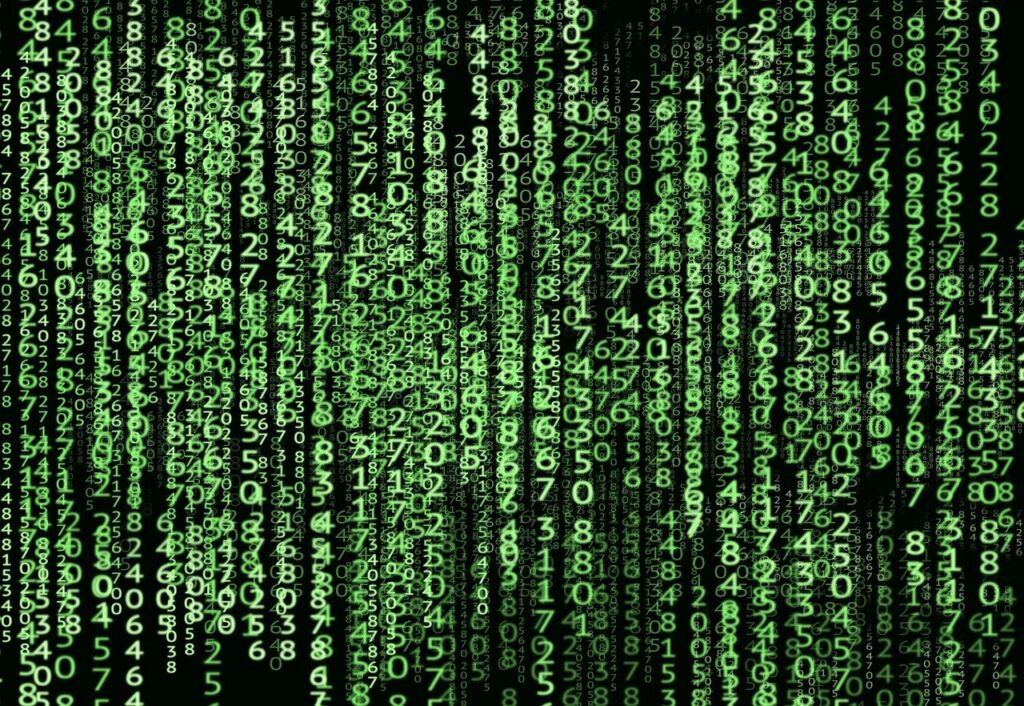As the field of data science continues to grow, so does the demand for skilled professionals who can extract insights and make data-driven decisions.
Platforms and Colleges To Learn Data Science Skills

Data Science Degrees from Bellevue University
BS in Data Science, MS in Data Science

Data Science Certificate from eCornell
Data Science & Analytics Certificate Programs

Data Science Bootcamp from Flatiron School
Data Science Bootcamp

Data Science Courses from Coursera
Choose from 15+ MBA Degree concentrations from Accounting, Leadership, Music Business, and much more.
What Does a Data Scientist Do?
A data scientist is a professional who is responsible for collecting, analyzing, and interpreting large sets of complex data to provide insights and solutions to business problems. To excel in this role, there are several essential skills that a data scientist must possess. In this blog, we will discuss the key skills required to be a successful data scientist and provide actionable tips for developing and honing these skills.
Building a Strong Foundation in Data Science Skills
To excel in data science, one must establish a strong foundation in key areas. These include statistics and probability, programming languages, data visualization, and the underlying mathematical principles.
Statistics and probability form the backbone of data science, enabling professionals to analyze and interpret data effectively. A solid understanding of descriptive and inferential statistics, probability theory, and hypothesis testing is crucial for drawing meaningful insights from data.
Proficiency in programming languages is another essential skill in data science. Python, R, and SQL are widely used in the industry, and mastering these languages will empower you to manipulate data, build models, and automate tasks efficiently.
Data visualization and presentation play a significant role in communicating data-driven insights to stakeholders. By familiarizing yourself with tools like Tableau, D3.js, and ggplot2, you can create engaging visualizations that effectively convey your findings. Additionally, it is important to adopt best practices for presenting data-driven insights, ensuring your audience can grasp the key takeaways quickly.
Lastly, mathematical foundations, particularly linear algebra and calculus, are vital for understanding advanced data science techniques. By grasping concepts from these disciplines, you will be better equipped to tackle complex problems and develop innovative solutions.
By investing time and effort into mastering these foundational data science skills, you will be well on your way to a rewarding career in this dynamic field.
Top Data Scientist Skills
Technical Skills
One of the most critical skills for a data scientist is a strong foundation in technical skills. This includes a deep understanding of programming languages such as Python and R, statistical analysis, and machine learning. Python is one of the most popular programming languages in the data science field and has a wide range of libraries and frameworks that are useful for data manipulation, visualization, and machine learning. While R is useful for statistical analysis and data visualization.
To develop your technical skills, you can start by learning the basics of Python or R through online tutorials and courses. Then, you can move on to more advanced topics such as machine learning and deep learning using libraries such as TensorFlow and PyTorch. Additionally, you should also have a good understanding of statistical analysis and be able to apply various techniques such as regression, classification, and clustering to real-world problems.
For more in-depth programming language learning, you should consider a coding bootcamp. This is especially true if your job responsibilities include applying different programming languages into your everyday tasks.
Data Wrangling and Preprocessing Skills
Efficient data wrangling and preprocessing are crucial for successful data science projects. This process involves cleaning and transforming raw data into a structured format suitable for analysis. Key aspects of data wrangling and preprocessing include data cleaning, data transformation, and data integration.
Data cleaning and preprocessing involve identifying and handling missing data, detecting and removing outliers, and normalizing and standardizing data. These tasks ensure that your dataset is complete, accurate, and consistent, paving the way for reliable and robust analyses.
Data transformation encompasses feature engineering and selection, as well as dimensionality reduction techniques. By creating new features from existing data and selecting the most relevant ones, you can enhance the predictive power of your models. Dimensionality reduction techniques, such as principal component analysis, help reduce computational complexity and improve model performance.
Data integration is the process of combining data from multiple sources, creating a unified dataset for analysis. This requires identifying and resolving data inconsistencies, ensuring that all data points adhere to a common format and structure.
Data Manipulation and Visualization
Data manipulation and visualization skills are also crucial for a data scientist. Being able to effectively manipulate and visualize large sets of data is essential for uncovering insights and patterns that can inform business decisions. SQL is a popular language for data manipulation and can be used to extract, transform, and load data from various sources. Data visualization libraries such as Matplotlib, Seaborn, and ggplot2 in Python and ggplot2 in R are also essential tools for data scientists.
To develop your data manipulation and visualization skills, you can start by learning SQL and experimenting with different data visualization libraries. There are many online tutorials and courses available that can help you get started. Additionally, you can also practice your skills by working on personal projects or participating in data science competitions.

Communication and Presentation Skills
While technical skills are essential for a data scientist, it is also important to have strong soft skills such as communication and presentation skills. Data scientists often need to explain their findings and insights to non-technical stakeholders and decision-makers. Therefore, it is important to be able to present data in a clear and concise manner, using visualizations and data storytelling techniques.
To develop your communication and presentation skills, you can start by practicing your data storytelling techniques. This includes identifying the key message you want to convey and using visualizations to explain the message clearly. Additionally, you can also take a course on data visualization or attend a workshop on data storytelling.
Statistics
Data scientists use statistical methods to analyze and interpret data, and to make predictions and inferences. They should have a solid understanding of probability theory, statistical inference, and statistical modeling.
Programming
Data scientists use programming languages such as Python, R, and SQL to manipulate, analyze, and visualize data. They should have a strong understanding of programming concepts such as data structures, algorithms, and software engineering.
Machine learning
Data scientists use machine learning algorithms to build predictive models and make data-driven decisions. They should have a good understanding of supervised and unsupervised learning, as well as deep learning and reinforcement learning.
As you progress in your data science journey, acquiring machine learning and advanced data science skills becomes essential. These advanced techniques enable you to build sophisticated models, uncover hidden patterns in data, and make accurate predictions. Key areas to focus on include supervised and unsupervised learning techniques, deep learning, and model evaluation and validation.
Supervised learning techniques, such as linear regression, logistic regression, decision trees, random forests, and support vector machines, are widely used to train models using labeled data. By learning these methods, you will be well-equipped to handle diverse data science tasks, such as predicting outcomes and classifying objects.
Unsupervised learning techniques, including clustering algorithms like K-means and hierarchical clustering, as well as principal component analysis, help you discover underlying structures in unlabeled data. Mastering these techniques allows you to segment data into meaningful groups and reduce dimensionality for improved model performance.
Deep learning and neural networks, such as convolutional neural networks (CNNs) and recurrent neural networks (RNNs), have revolutionized fields like computer vision and natural language processing. Gaining proficiency in these advanced techniques will enable you to tackle complex problems and develop cutting-edge solutions.
Finally, model evaluation and validation are crucial for ensuring the reliability and accuracy of your models. Familiarize yourself with cross-validation techniques, performance metrics for classification and regression models, and strategies for model selection and hyperparameter tuning. These skills will help you develop robust models that generalize well to new data.
Problem-solving and Teamwork
Data scientists work on complex and open-ended problems and must be able to think critically and creatively to find solutions. They should have strong analytical skills and be able to work through large and complex datasets.
Data scientists often work in teams and should be able to collaborate effectively with colleagues from different backgrounds and disciplines.
Cultivating Soft Skills for Data Scientists
Beyond technical expertise, soft skills play a crucial role in the success of a data scientist. These skills enable you to work effectively within teams, communicate complex concepts, and adapt to the ever-evolving landscape of data science. Key soft skills for data scientists include communication and collaboration, problem-solving and critical thinking, and adaptability and continuous learning.
Communication and collaboration involve effectively conveying data-driven insights to non-technical stakeholders and working closely with cross-functional teams. By honing these skills, you can ensure that your findings are understood and acted upon, maximizing the impact of your work.
Problem-solving and critical thinking are essential for identifying and defining real-world problems, as well as developing and evaluating potential solutions. By refining these skills, you can tackle complex challenges and make informed decisions that drive success in your projects.
Adaptability and continuous learning are vital for staying up-to-date with industry trends and advancements. Embracing a growth mindset and pursuing continued education and professional development opportunities will keep you at the forefront of the data science field and enable you to seize new opportunities as they arise.
By focusing on cultivating these soft skills alongside your technical expertise, you will be well-equipped to excel in your data science career and make meaningful contributions to your organization and the broader field.

Real-world Examples
To better understand the importance and application of these skills, let’s look at a few real-world examples. One example is how Netflix uses data science to personalize its content recommendations to its users. Netflix’s data scientists use machine learning algorithms to analyze its users’ viewing habits and make personalized recommendations. This requires a deep understanding of machine learning and data manipulation skills to extract and analyze relevant data.
Another example is how the retail giant Amazon uses data science to optimize its pricing strategy. Amazon’s data scientists use a combination of statistical analysis and machine learning to analyze sales data and make pricing decisions. This requires a deep understanding of statistical analysis and data manipulation skills to extract and analyze relevant data.
Tips and Resources To Strengthen Your Data Science Skills
Here are some tips and resources that data scientists can use to strengthen their skills:
Practice
The best way to improve your skills is by practicing on real-world projects. You can work on personal projects, participate in data science competitions, or find a mentor who can guide you through a project.
Online Courses and Tutorials
There are many online courses and tutorials available that can help you learn new skills or refresh existing ones. Online learning platforms such as Coursera, DataCamp, and Udemy offer a wide range of data science courses.
Read Books and Articles
Reading books and articles about data science can help you stay up-to-date with the latest trends and techniques. Some popular books for data scientists include “Python Machine Learning” by Sebastian Raschka, “Data Science from Scratch” by Joel Grus, and “The Hundred-Page Machine Learning Book” by Andriy Burkov.
Join a Community
Joining a community of data scientists can provide a valuable network of professionals with whom you can collaborate and share knowledge. Platforms like Kaggle and Data Science Central provide a forum for data scientists to connect and collaborate.
Attend Conferences and Meetups
Attending conferences and meetups can be a great way to learn from experts in the field, discover new tools and techniques, and network with other data scientists.
Participate in Hackathons and Kaggle Competitions
Participating in Hackathons and Kaggle competitions can be a great way to put your skills to the test and get feedback from other data scientists.
Learn A New Tool Or Technology
Data science is a rapidly evolving field, and new tools and technologies are constantly emerging. It is important to keep an eye out for new tools and technologies and learn how to use them as they can help improve your skills and make you more valuable in the job market.
Soft Skills Practice
Continuously practice your soft skills, especially communication and presentation skills. As a data scientist, you will often have to present your findings to non-technical stakeholders and decision-makers. Therefore, it is important to practice your communication and presentation skills so you can clearly convey your message.

Key Takeaways That Data Scientist Skills
Data science is a rapidly growing field that requires a diverse set of skills to be successful. A strong foundation in mathematics and statistics, programming and data wrangling, data visualization, and machine learning are essential for any data scientist. Additionally, the ability to communicate effectively, think critically and creatively, and continuously learn and adapt are also key skills that will help data scientists excel in their careers. Data scientists who have a strong grasp of these essential skills will be well-positioned to tackle the complex and diverse challenges that arise in the field.

